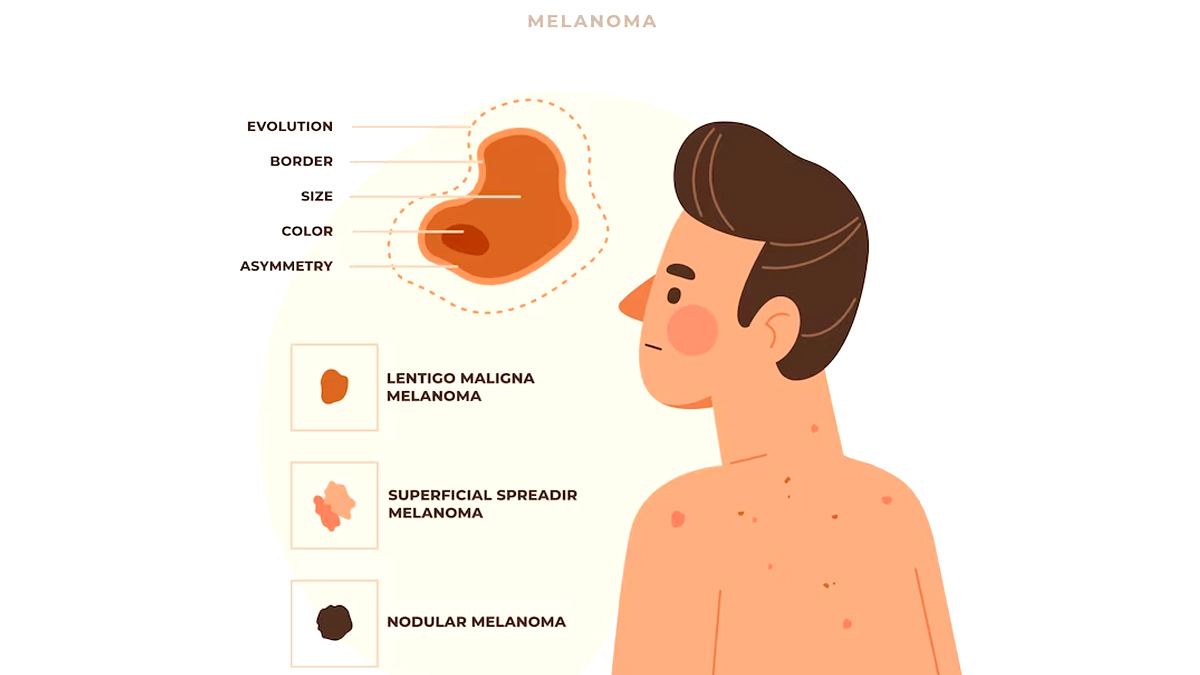Stages In Which Abnormal Mole Can Turn Cancerous


Melanoma, a type of skin cancer that originates from melanocytes, the pigment-producing cells of the skin, is one of the most aggressive forms of skin cancer. Over the past few decades, its incidence has been steadily increasing, making it crucial for people to understand its progression and stages.
According to Dr Smriti Naswa Singh, Consultant Dermatologist and Cosmetic Dermatologist, Fortis Hospital, Mulund (Mumbai), melanoma is a type of skin cancer, more common in men and people above the age of 50 years. It develops in the skin’s pigment cells called melanin
As per her, although the specific cause is unknown, exposure to ultraviolet (UV) rays from the sun, tanning lights, or beds raises the risk. Melanoma can also develop in non-UV-exposed places, such as beneath the nails, the vaginal area, the palms and soles.
Melanoma In Situ
At the earliest stage, melanoma remains confined to the epidermis (the outermost layer of the skin) and has not invaded deeper tissues. This stage is known as melanoma in situ. It is often detected during routine skin examinations or when a suspicious mole is biopsied. While it is non-invasive, early treatment is vital to prevent the cancer from progressing to more dangerous stages.

Also read: Abnormal Mole Or Skin Growth? Experts Explains Detection And Types Of Melanoma
Localised Melanoma
In stage I, the melanoma has penetrated beyond the epidermis into the dermis (the second layer of the skin) but is still relatively small and localised. At this stage, the tumour is thin and measures less than 1 millimetre in thickness. The prognosis for stage I melanoma is generally excellent, with a high likelihood of complete cure through surgical excision.
Regional Melanoma
At stage II, the tumour has grown slightly larger and may vary in thickness. It may also show signs of ulceration, but the cancer remains localised to the skin and nearby lymph nodes. The risk of the melanoma spreading to other parts of the body increases in stage II. Treatment may involve surgical excision, and in some cases, sentinel lymph node biopsy to assess the status of regional lymph nodes.
Advanced Local Melanoma
Stage III melanoma indicates that the cancer has spread to nearby lymph nodes or tissues surrounding the primary tumour site. The affected lymph nodes may be palpable or may be detected through imaging studies. Treatment at this stage often involves surgical removal of the lymph nodes and may be followed by additional therapies like immunotherapy or targeted therapy to lower the risk of recurrence.

Metastatic Melanoma
Stage IV is the most advanced stage of melanoma, where the cancer has metastasized or spread to distant organs such as the lungs, liver, brain, or bones. Metastatic melanoma is challenging to treat and requires a multidisciplinary approach, including systemic therapies like immunotherapy, targeted therapy, chemotherapy, or radiation. The goal of treatment at this stage is to control the disease, improve symptoms, and prolong survival.
The stages of melanoma represent a continuum, from early, highly treatable lesions to advanced, more challenging cases. Regular self-examinations, routine skin checks with a dermatologist, and prompt evaluation of suspicious moles are essential for early detection and favourable outcomes.
Also read: Skin Cancer: 7 Signs To Watch Out For Other Than An Abnormal Mole
Melanoma, when detected and treated in its early stages, offers an excellent prognosis with high cure rates. However, advanced melanoma requires a comprehensive treatment plan and ongoing monitoring to manage the disease and improve the patient’s quality of life. Raising awareness about the stages of melanoma emphasises the significance of preventive measures and underscores the importance of seeking medical attention promptly for any concerning skin changes.
